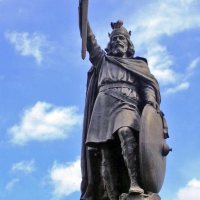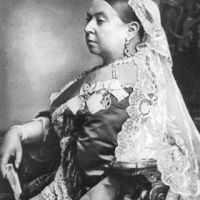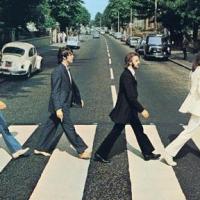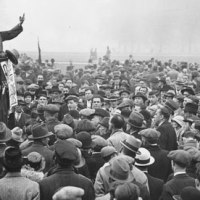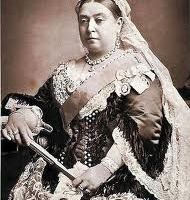The Crimea…Half a League Onward…….
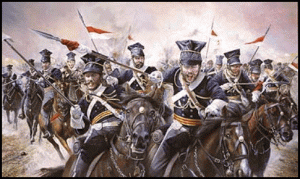
Half a league, half a league,
Half a league onward,
All in the valley of Death
Rode the six hundred.
‘Forward the Light Brigade!
Charge for the guns!’ he said:
Into the valley of Death
Rode the six hundred.
Just over a hundred years ago the world went to war, and the stage for it was set by another smaller but no more less significant conflict almost 60 years earlier. It’s a timely reminder – because it was called the Crimean War.
It was a war which altered the balance of power in Europe, and which subsequently led to the assassination in 1914 of Archduke Ferdinand – heir presumptive to the Austro-Hungarian throne. His killer was Gavrilo Princip a Serbian nationalist who wanted the South Serb provinces to break away and be combined into Greater Serbia – or a Yugoslavia – a union of South Slavic countries.
This ultimately led to other European states being dragged in, all vying for their position and alliances, and so it was that the Great War began. This brief introduction, deliberately short on studious analysis is merely to put the Crimean War into context. And we must go even further back from it’s origins to understand how and why the Crimean War began – as far back as the Napoleonic Wars 200 years ago.
2014 commemorated the 100th anniversary of the start of World War One, but last year 2015 also commemorated the 200th anniversary of the Battle of Waterloo and the end of Bonaparte’s dream of a European empire, with he as her emperor.
At the end of the Napoleonic war the great powers Britain, Russia, Prussia, Austria and France got together in Vienna to try and restore European stability by suppressing revolutionary republics and supporting sensible monarchies. Known as the Treaty of Vienna, it led to 30 years of peace in Europe. By 1845 this peace was showing signs of cracks, principally because of the weakness of the Ottoman-Turkish empire.
Then as now Turkey had one foot in Europe and the other in Asia, or more to the point one foot in European Christian orthodoxy and the other in Islamic Middle East. At this point enters the protagonist, then as now – Russia.
Tsar Nicholas was keen to take advantage of the weakness of the Ottoman Empire with a view to carve up the European part of Turkey and gain some valuable strategic areas. This effectively would give Russia control of the Dardanelles, the strait which connects the Black Sea to the Aegean, and more famously known today for the disastrous tragic WWI campaign of Gallipoli.
Due to increased Russian aggression, Turkey declared war against Russia in October 1853. A month later the Russian Black Sea fleet destroyed a Turkish squadron at Sinope, a Turkish city on the Black Sea, which galvanised British concerns because it threatened her trade links with Turkey and India.
The French, who had no particular interest in Turkey, chose to ally themselves to Britain because they were still smarting from their defeat by Russia in 1812 (later immortalised in Tolstoy’s “War and Peace” and Tchaikovsky’s 1812 Overture) and thought that this was their chance to return the bloodied nose.
An ultimatum was issued to Russia to evacuate from the area by March 1854. That month was significant because by then the Baltic ice fields would break up allowing the British to annihilate the Russian fleet should the demand be ignored, which it was. By August the combined Anglo-French fleet took control of the Baltic. Austria subsequently joined the alliance and together contributed to an army of 60,000 to defend Istanbul.
The Russian Tsar ignored the threats (shades of Putin here) and called the bluff. A British plan was formulated to land in the Crimea, and attack Sevastopol with the view of destroying the Russian fleet and the dockyard. What followed was a catalogue of indecision, chess board manoeuvring and glorified Victorian valour which resulted in the Battle of Balaclava and the Charge of the Light Brigade. This astonishing display of bravery, courage (madness some will say) into the “valley of death” as Tennyson penned it, so shocked and frightened the Russians that they never again dared to face the British in the field.
Eventually there was a victory of sorts, and the Russians accepted defeat, the demilitarisation of the Black Sea, and for a time the European settlement of the “Turkish Question”. With the 1856 Treaty of Paris, (as with all face-saving treaties of this kind) Russia went home to lick her wounds with a modicum of compensation.
That’s what it’s all about and that’s why the defeated always walk away with a prize of sorts. Political expediency, diplomacy and conciliation make the world go around, regardless of the pain and suffering to get there in the first place. It’s easy to start something, but damned difficult to end something. A lesson we never seem to learn.
Today Russia is on the aggressive ascendancy, and Turkey seeks a political route to European Union membership through clever compromise and negotiation regarding the current mass refugees crisis. History may be the past, but it is also the present and the future, and we ignore it at our peril.
See also Bardiness: Florence Nightingale
Related articles




